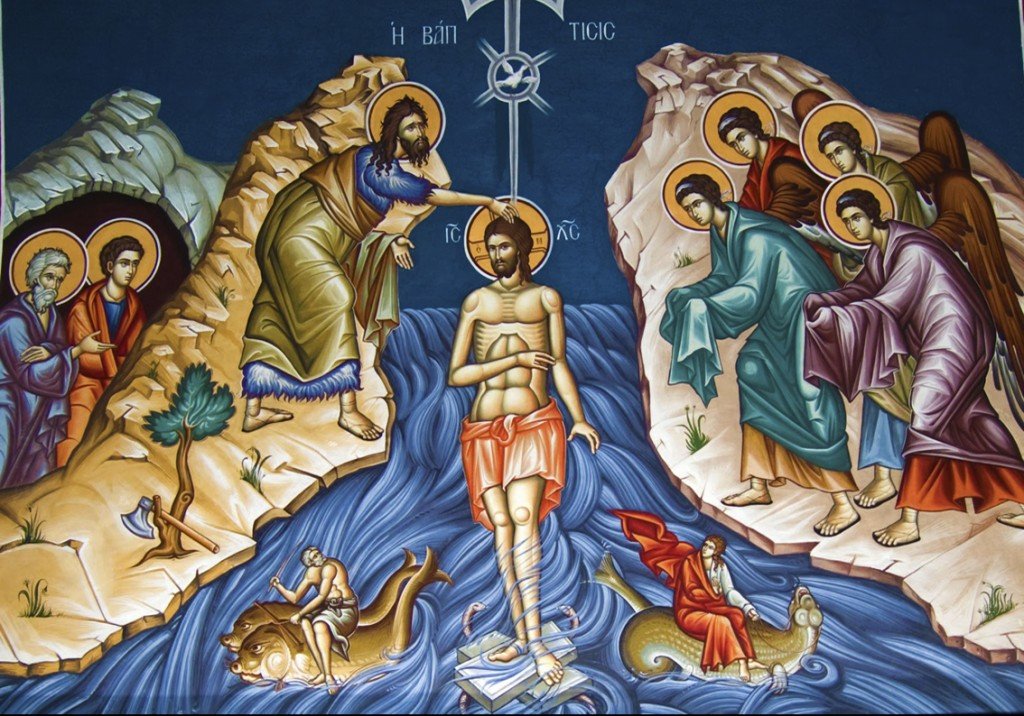 This weekend we celebrate the great feast of the Theophany as a spiritual community. It is truly recorded as one of the “theophanic” or “God-revealing” events in the life of Jesus and in human history. In Matthew’s version of the event, today’s Gospel, this was a spiritual event not only for the man Jesus but also for others. It reads:
This weekend we celebrate the great feast of the Theophany as a spiritual community. It is truly recorded as one of the “theophanic” or “God-revealing” events in the life of Jesus and in human history. In Matthew’s version of the event, today’s Gospel, this was a spiritual event not only for the man Jesus but also for others. It reads:
After Jesus was baptized, he came directly out of the water. Suddenly the sky opened and he saw the Spirit of God descend like a dove and hover over him. With that, a voice from the heavens said, “This is my beloved son. My favor rests on him”.
As this reads, it is John the Baptizer who sees the dove and hears the voice. In Luke’s Gospel we also hear:
When all the people were baptized, and Jesus was at prayer after likewise being baptized, the skies opened and the Holy Spirit descended on him in visible form like a dove. A voice from heaven was heard to say: “You are my beloved Son. On you my favor rests”.
Mark’s Gospel presents this event in this manner:
Immediately on coming up out of the water he saw the sky rent in two and the Spirit descending on him like a dove. Then a voice came from the heavens: “You are my beloved Son. On you my favor rests”.
The Church has picked Matthew’s version of this event – especially because of the wording of the voice from heaven – to signify that this event in Jesus’ life is also meant to be a revelation to humankind. One can easily get the impression from Mark and Luke’s versions that the words were heard only by Jesus.
In the story of the Lord’s Transfiguration, all three Synoptic Gospels report the voice from heaven saying: “This is my beloved Son,” clearly sharing that the words were, because they were heard by the three Apostles, meant to be a revelation to all humankind as well as Jesus.
Truly the words of Paul to Titus support the fact that the Theophany is meant to reveal that GOD IS WITH US. Paul writes: “The grace of God has appeared, offering salvation to all men.” The events in Jesus’ life that we celebrate are meant to help us believe that God so loves us that He came to show us how to live and, therefore, eventually achieve the fullness of life, which is salvation.
